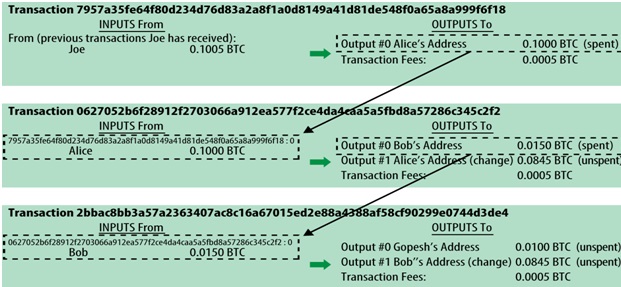How is data about something traceable…
So using your example, a blockchain would exist as the title for the truck, the ledger a signature of each owner and their authorization for transfer of the title to a new owner. Say that Alice bought a new truck she got issued a new coin, this coin validates that her coin wallet now possess the unique hash attributed to her truck. Now a few months later Joe want’s to sell her truck to Alice. Alice paid Joe 0.1 makercoin for the truck. The network would validate the transaction using Proof of Work(PoW) or equivalent methods (Proof of Stake/Authority). Following that Alice sells the truck to Bob for 0.0150 makercoin. This is all recorded in a blockchain.

The resulting data would exist as the transactional hash (7957a…6f18, …) within the merkle tree ledger which is distributed by the blockchain network. The only data that would exist is the transaction, addresses involved, coin/transaction fees involved. Anything else should live in its own database.
how would one “query” blockchain?
Coins like Etherium while do simulate some functionality which seems like the ability to query they really under the hood are just establishing a web socket to a central system for pubsub messaging about select addresses.
So at a fundamental level one does not because blockchain is not a relational database its a merkle tree of signed messages with a p2p network to drive a raft consensus engine. At a theoretical level its similar to a document based nosql without a query engine. Thus if one has the transaction or address hash they can then walk that merkle tree but not query for such.

